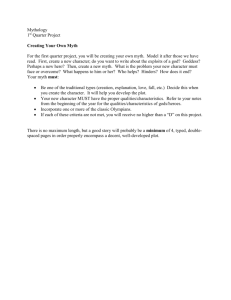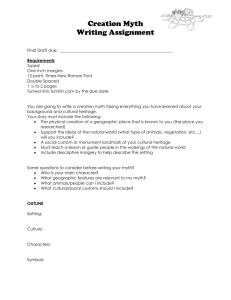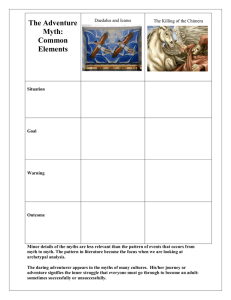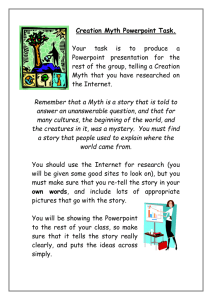M y t h s A b o... P l a n n i n g Career Development
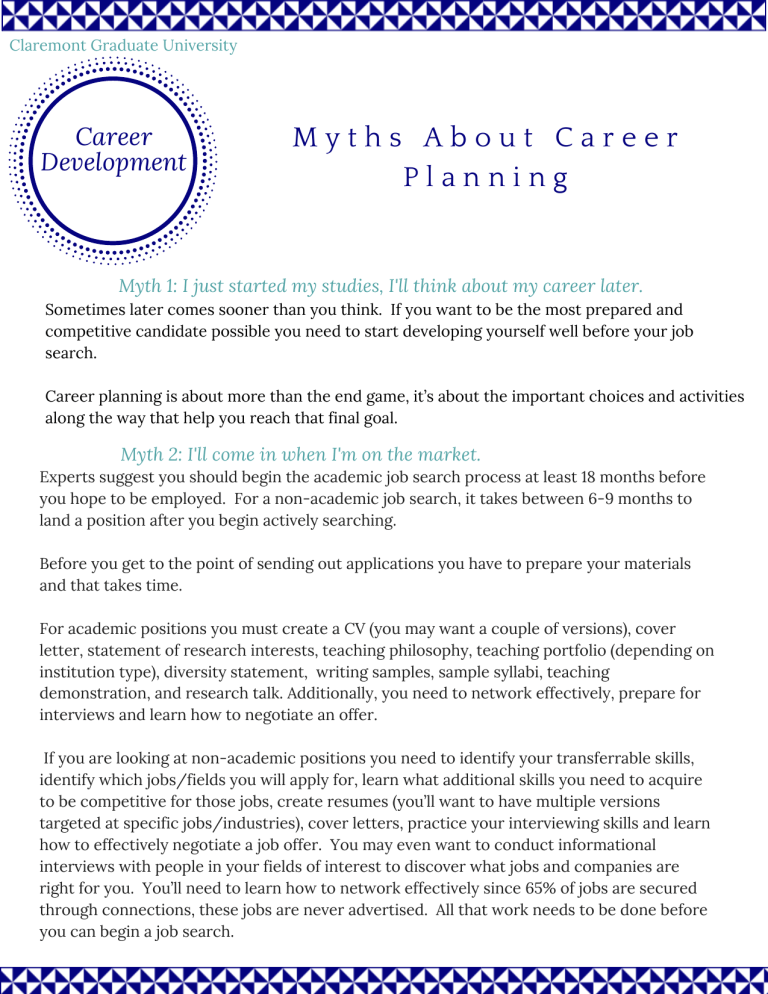
Claremont Graduate University
Career
Development
M y t h s A b o u t C a r e e r
P l a n n i n g
Myth 1: I just started my studies, I'll think about my career later.
Sometimes later comes sooner than you think. If you want to be the most prepared and competitive candidate possible you need to start developing yourself well before your job search.
Career planning is about more than the end game, it’s about the important choices and activities along the way that help you reach that final goal.
Myth 2: I'll come in when I'm on the market.
Experts suggest you should begin the academic job search process at least 18 months before you hope to be employed. For a non-academic job search, it takes between 6-9 months to land a position after you begin actively searching.
Before you get to the point of sending out applications you have to prepare your materials and that takes time.
For academic positions you must create a CV (you may want a couple of versions), cover letter, statement of research interests, teaching philosophy, teaching portfolio (depending on institution type), diversity statement, writing samples, sample syllabi, teaching demonstration, and research talk. Additionally, you need to network effectively, prepare for interviews and learn how to negotiate an offer.
If you are looking at non-academic positions you need to identify your transferrable skills, identify which jobs/fields you will apply for, learn what additional skills you need to acquire to be competitive for those jobs, create resumes (you’ll want to have multiple versions targeted at specific jobs/industries), cover letters, practice your interviewing skills and learn how to effectively negotiate a job offer. You may even want to conduct informational interviews with people in your fields of interest to discover what jobs and companies are right for you. You’ll need to learn how to network effectively since 65% of jobs are secured through connections, these jobs are never advertised. All that work needs to be done before you can begin a job search.
Myth 3: What if I don't know what career I want?
We can help you discover and search for the career you want. If you entered your program hoping to discover your dream career along the way, it might be helpful for you to have an individual coaching session. In the session you will explore your career needs, wants and values so you can actively shape your career path rather than hoping it appears before you.
Myth 4: My advisor will give me all the help I need.
Advisors are content experts in their fields, but not content experts in career development or job search strategies. If you plan to seek employment outside academe, your advisor may have little experience in that area. Even if you plan to seek an academic job, you might need more knowledge about different institution types than you can get from your advisor(s).
Myth 5: I don't know what resources you have.
Academic career workshops
Non-academic career workshops
Individual coaching/counseling appointments
Practice interviews
Career panels
Informed consultants who can direct you to the resources that best meet your needs.
Website with information about all aspects of the career development process
Final Advice
Visit us to learn more about how we can help you achieve your career goals.
http://www.cgu.edu/careerdevelopment
Visit the Career Development Office for more information.
Visit cgu-csm.symplicity.com/students/ to request an appointment.
We are located in the Student Success Center:
131 E. 10 th St. Claremont, CA 91711 (909)621.8177


